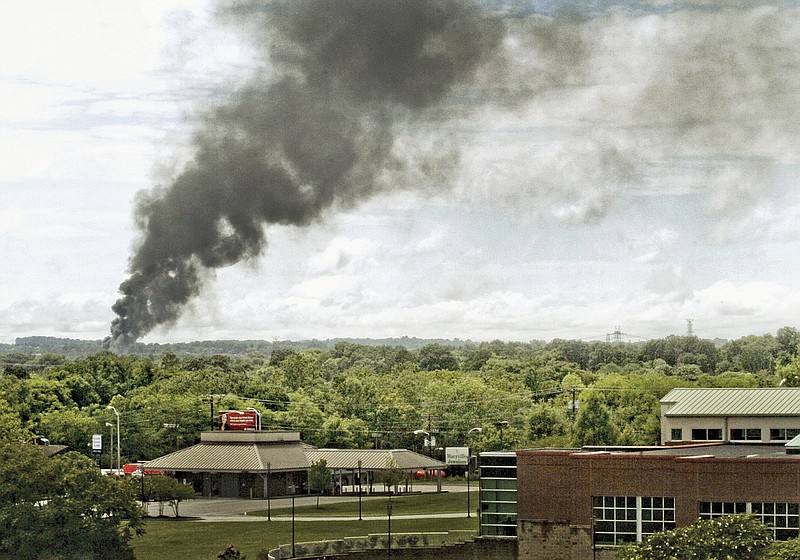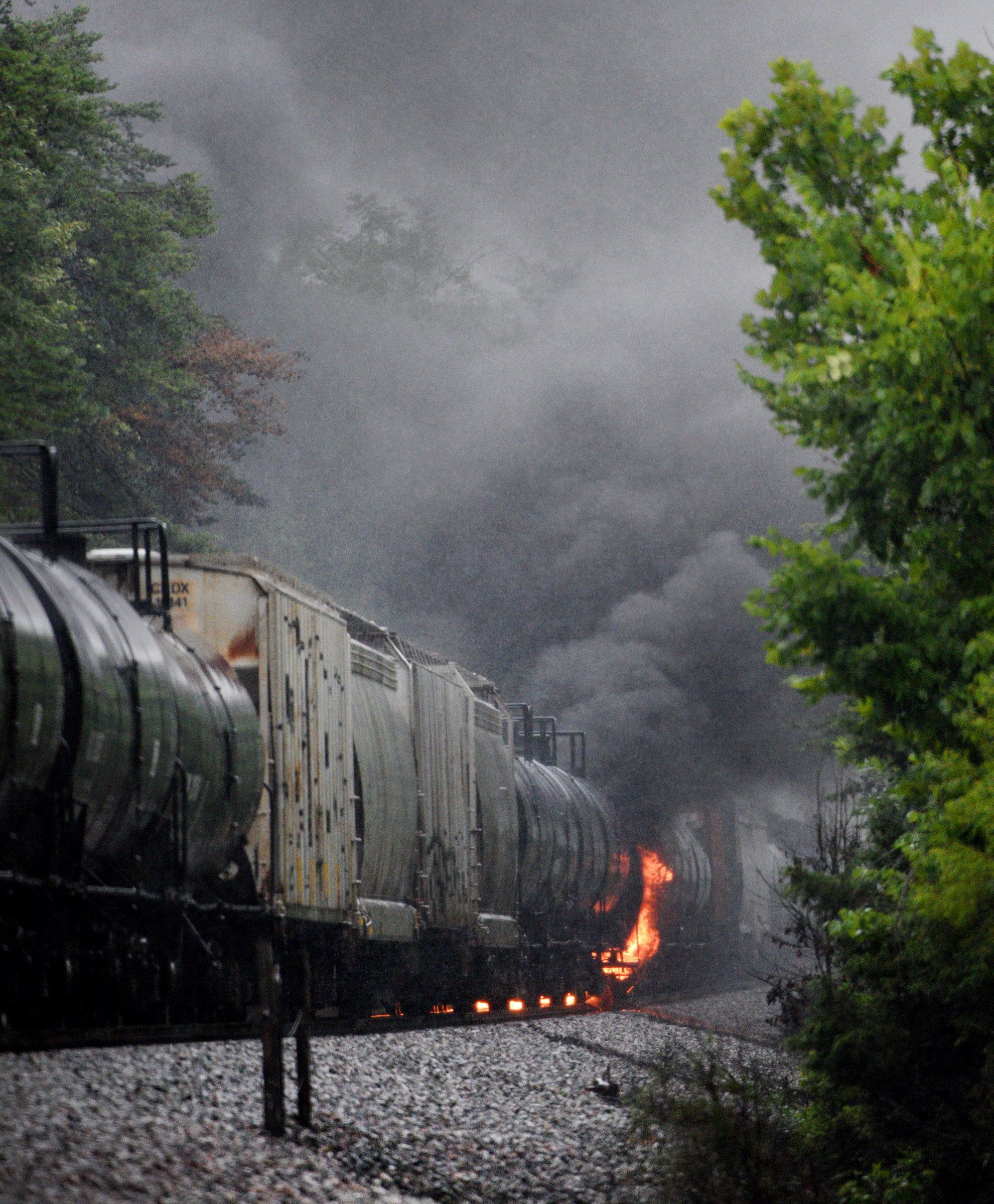Officials on Sunday issued an advisory against activity in Culton Creek after biologists found dead fish in the wake of Thursday's CSX train derailment.
The advisory came down from the Environmental Protection Agency, the Tennessee Department of Environment and Conservation, and officials from Blount County, Alcoa and Maryville governments.
According to reports, biologists working to install a water treatment system found dead fish in Culton Creek around 4:30 p.m. Sunday. They judged that the fish may have died around the time of Thursday's derailment involving a CSX tank car carrying toxic chemicals.
As a precaution, people are advised to refrain from activity in Culton Creek from Old Mount Tabor Road to North Hall Road.
Officials also said that, according to samples taken in the wake of the accident, water from Pistol Creek and Little River is safe for normal activity.
Otherwise, cleanup efforts from the early-morning train accident proceeded on schedule Sunday. A CSX spokesperson said two remaining rail cars left over from the accident were removed over the weekend, and crews began excavating potentially contaminated soil from the area, replacing it with new soil.
The derailment took place in the early-morning hours Thursday after the train carrying toxic materials from Ohio to Georgia derailed near Mount Tabor Road.
Rail cars carrying a flammable chemical called acrylonitrile caught fire, forcing the evacuation of around 5,000 area residents within a 2-mile radius of the crash.
It took emergency personnel around 17 hours to extinguish the resulting blaze. Officials believe most of the toxic chemicals dissipated as they burned.
With the immediate danger having passed, the evacuation was lifted Friday, and local residents began making their way back to their homes. Many residents went to emergency shelters, first at Foothills Mall and later at Heritage High School, or checked into local hotels in the wake of the accident.
Excavating soil
Sunday afternoon, CSX spokesperson Kristin Seay said crews were still working to replace contaminated soil, having finished removing derailed cars from the site. It isn't clear how long the soil excavation will take, she said.
She said CSX has established a community outreach center at Heritage Middle School, to handle claims and other issues arising from the derailment.
The center will remain open from 8 a.m. to 8 p.m. through Tuesday, she said. Afterward, CSX will use a mail-in system to handle additional claims.
CSX officials at the center are working with impacted families in various ways, she said, providing reimbursements for hotel stays and lost-work compensation, among other things.
"We want folks to know that we will be available until all of the community's needs are met," she said.
Some roads blocked
Maryville Police Chief Tony Crisp said there is still some road blockage related to the excavation work, around Mt. Tabor Road, Old Mt. Tabor Road, and Old Glory Road.
The issues at Culton Creek notwithstanding, officials have determined that well water in the community is safe to use. Two rounds of testing showed no groundwater contaminants in samples from various local wells.
As far as immediate health consequences are concerned, 125 people reported to Blount Memorial Hospital after the derailment, fearing possible exposure to hazardous chemicals. Forty-four of those people were admitted, according to a hospital spokesperson, and by Saturday, all but four had been discharged.
A handful of emergency personnel were treated for potential exposure, including five Alcoa Police Department officers and five members of Blount County Sheriff's Office. All of those officers have since been released and cleared for duty.
Questions regarding the use of Culton Creek should be directed to GHD-Environmental Consultants at 1-866-812-9565. People with questions for the community outreach center can call 1-800-331-4031.

